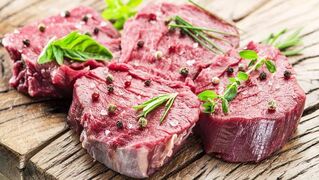Japanese cinema and animation impresses with its authentic atmosphere, fantastic images, incredible beauty and slenderness of Japanese women. The Japanese are recognized as the slimmest people in the world. The secret lies not only in the lean national specificity, but also in the moderation of the portions and healthy eating. The name "Japanese diet" alone is interesting. What does it take to become a fragile geisha? Let's find out!
The reason why the Japanese diet is called may not be clear, but the results of the approach are impressive - you can lose 4-8 kg in two weeks, depending on your initial weight. According to one source, the approach was developed at a clinic in Tokyo, in another - transparency of rules and eating habits dictates a clear path to achieve this goal. Those who try will be rewarded - reminiscent of the samurai.
The 14-day Japanese diet (original version) is known all over the world, with a product list that is affordable and moderate. Japanese nutritionist Naomi Moriyama claims that low-carb foods and moderate rations help maintain youth and longevity.

Moriyama research statistics show that Japanese consume 25% fewer calories than other nations. The use of fatty foods, fatty foods and butter on an industrial scale is not popular in the country. Healthy food and small portions are hallmarks of Japanese culture.
This principle corresponds to the menu of the Japanese diet for 7 days or 2 weeks, even though the ingredients differ from the diets of the inhabitants of the country of the rising sun.
In this article, we analyze the following:
- principles dictated by the Japanese diet for weight loss;
- advantages and disadvantages of the approach;
- for whom the Japanese dieting diet is inappropriate for health reasons;
- main menu for 7 and 14 days;
- should remain a.
Samurai Japanese Diet Rules
For a 7, 13, 14 day Japanese diet to be effective, the following rules must be followed:
- Preliminary preparation - a week before the start, give up fast food, fatty products, sweets, salty foods;
- complete exclusion of salt, sugar, spices, sauces from the diet;
- chews food thoroughly for satiety;
- the pre-compiled menu of the Japanese diet is strictly adhered to during the selected period (7, 13, 14 days);
- Do not change the order by meal days;
- after waking up, drink a glass of warm water;
- coffee can be replaced with green tea;
- Adherence to the drinking system - at least 2 liters of standing water. Decomposition products of animal proteins are excreted and fill the stomach, suppressing hunger;
- It is forbidden to change ingredients or add unauthorized products;
- frequency of application of the method - 2-3 times a year. This is due to the high level of stress in the body; Exiting
- from the diet should be smooth so that lost fat does not come back;
- The main source of the Japanese diet for weight loss is protein foods. Small amounts of carbohydrates in the form of crackers and fiber as well as fats come from unrefined oils as salad dressings, meat and fish dressings.

A strict Japanese diet includes all the macronutrients in your diet, albeit with caution. In this respect, the method cannot be described as balanced, so the Japanese diet is followed for 7 to 14 days in order not to harm health.
A protein diet can reduce vitality in two weeks, causing apathy and headaches due to the low carbohydrate content in the diet. For the first signs of severe malaise, it is recommended to consume complex carbohydrates or to leave the diet altogether.
Features of a strict Japanese diet diet
The first association with the name "Japanese diet" - for 14 days the menu consists of eating sushi, rice and curry every day for breakfast, lunch and dinner, but in limited portions. In reality, several features of the approach stand out:
- small doses;
- caloric intake - 800 kcal;
- meals are strictly taken three times a day, no snacks;
- 14 days - maximum period;
- salt exclusion.
The essence of dietary nutrition

The basic rule is that the Japanese thirteen-day diet limits the intake of all sugars, salt, and carbohydrates. You can lose up to 8 kg in 7, 13 or 14 days. The lack of macro- and microelements can cause severe disruption to the body’s work, so it is highly undesirable to stick to the approach for an extended period of time.
There’s a 13-day Japanese salt-free diet because people in the East consider the number lucky. In Europe, however, this number is perceived differently, so due to suspicion and convenience, weight loss lasts for 7 or 14 days.
Contraindications
The Japanese diet can be considered rigid for a week or two and has several contraindications:
- for high blood pressure, heart disease, blood vessels;
- diabetes mellitus;
- thyroid disorders;
- during pregnancy and lactation;
- gastrointestinal diseases of any complexity, kidney diseases;
- while exercising;
- Hard physical and mental work.
If the question arises as to whether to get rid of a kilogram gained during a feast immediately, it is recommended to give preference to fasting days - this practice does not harm health, relieves digestion and gets rid of the water collected during the holidays.
Benefits
The Japanese salt-free diet has been gaining popularity for 7 to 14 days. What attracts the method:
- weekly weight loss effectiveness;
- removing water from the body;
- Easy diet and affordable ingredients.
The early results of the Japanese diet are impressive. This is when the maximum weight loss occurs due to the release of "ballast" from the water due to the exclusion of salt and the minimum carbohydrate consumption. In the second week, the weight does not depend as actively as there is no excess water left. Little energy comes from food, so the body is forced to break down its own fat.
However, along with fat, muscle tissue is broken down. In addition to long-term maintenance, in addition to deteriorating health, the quality of the body will also be poor. You may want to consider whether it’s worth it.
Disadvantages

A low-carb, salt-free Japanese diet will not go without consequences. Disadvantages of this method:
- Excessive caloric deficiency (800 kcal) slows down metabolism;
- chronic diseases worsen; Restriction of micro- and macro-elements
- disrupts the overall functioning of the body;
- high levels of stress for functional systems; Instead of breakfast,
- coffee strains the work of the heart and blood vessels;
- a narrow and limited menu exerts psychological pressure full of breakdowns;
- systematic feeling of hunger, which reduces concentration;
- high fatigue, irritability, apathy, decreased performance, dizziness;
- A sharp return to your normal diet will bring you back the lost pounds with weight gain.
Recommended and Prohibited Products
As romantic as the name of the weight loss method sounds, it won’t be exotic. Foods included in the Japanese salt-free diet are familiar to Europeans. Ingredients are available at the supermarket or deli and are affordable.
Meat and fish dishes, garnished with vegetables, are common. But the exclusion of salt and spices, bread, cereals and pasta becomes a psychological test.
List of foods allowed to compile the menu:

- protein - sea fish, beef, veal, chicken fillet, eggs, low-fat hard cheese;
- drinks - water, natural coffee, green tea, homemade tomato juice without salt, kefir 0, 1-1%;
- dark bread with croutons;
- fiber (vegetables) - carrots, cabbage, zucchini, eggplant, parsnips root;
- fats - unrefined oils (olive, vegetable);
- fruit - green apples and pears, citrus fruits.
Food ingredients not listed are still prohibited.
Menu for 7 days
In the 14-day menu of the Japanese diet, a limited set of foods, the special nutrition table, helps to clearly control this.
Days / Meals |
Breakfast |
Lunch |
Dinner |
Monday |
Coffee |
2 eggs, a glass of tomato juice, cabbage salad with butter |
200 g of sea fish |
Tuesday |
Coffee with dark bread croutons |
200 g of fish, cabbage salad with butter |
100 g of beef with a glass of kefir |
Wednesday |
Coffee |
1 egg, 3 large boiled carrot salad with butter |
2 apples |
Thursday |
Coffee |
Zucchini or parsnips root, 1-2 apples |
100 g of beef, cabbage salad, 2 eggs |
Friday |
1 boiled or raw carrot with lemon juice |
500 g of sea fish, a glass of tomato juice |
2 apples |
Saturday |
Coffee |
500 g chicken breast, cabbage salad with carrots (or one ingredient) |
2 eggs, buttered carrots |
Sunday |
Coffee |
100 g of beef, 2 apples or pears |
Any version of previous days except apple |
How to cook the products: steamed, boiled, fried. Roasting is excluded.
Japanese diet for 14 days: the point in brief

If the first week was given without breakdowns and the health status allows you to continue, the menu for the first seven days will be repeated in the second week, or the menu will become a little more varied.
Menu for 14 days
It is forbidden to rearrange meals or days.
1 day |
Breakfast: milk and sugar-free coffee / cup of green tea Lunch: braised cabbage with a little olive oil, tomato juice, 2 hard boiled eggs Dinner: 200 g of cooked fish |
Day 2 |
Breakfast: a small piece of rye croutons, coffee or green tea Lunch: 200 g of boiled fish with cabbage salad oil Dinner: 100 g of boiled beef, 1 glass of 0, 1-1% kefir |
Day 3 |
Breakfast: a small piece of rye croutons, coffee or green tea Lunch: zucchini or eggplant fried in vegetable oil (unlimited quantities) Dinner: 200 g of boiled beef, white cabbage with a little oil, 2 boiled eggs |
Day 4 |
Breakfast: grated carrots with lemon juice Lunch: 200 g of cooked fish, a glass of tomato juice Dinner: 200 g of apples |
Day 5 |
Breakfast: grated carrots with lemon juice Lunch: 200 g of boiled fish, a glass of tomato juice Dinner:200 g grapefruit |
6 days |
Breakfast:coffee or green tea Lunch:boiled chicken fillet, cabbage and carrot salad with vegetable oil Dinner:2 hard boiled eggs, small fresh carrots |
7 days |
Breakfast:coffee or green tea Lunch:200 g of boiled beef Dinner:200 g pears or 200 g boiled fish / b2 boiled eggs with a little fresh carrot / 200 g boiled beef and 1 glass of low-fat kefir |
Day 8 |
Breakfast:coffee or green tea Lunch: boiled chicken fillet, salad of fresh cabbage and carrots with vegetable oil Dinner:2 hard boiled eggs, small carrots |
Day 9 |
Breakfast: grated carrots with lemon juice Lunch: 200 g of cooked fish, a glass of tomato juice Dinner:200 g of apples |
Day 10 |
Breakfast:coffee or green tea Lunch:1 hard egg, 3 small carrots, 50 g cheese Dinner:200 g orange |
Day 11 |
Breakfast: a small piece of rye croutons, coffee or green tea Lunch:zucchini or eggplant fried in vegetable oil Dinner:200 g of boiled beef, 2 hard boiled eggs, fresh cabbage salad with vegetable oil |
Day 12 |
Breakfast: a small piece of rye toast, coffee or green tea Lunch:200 g of boiled fish with fresh cabbage salad oil Dinner: 100 g of boiled beef, 1 glass of 0, 1-1% kefir |
Day 13 |
Breakfast:coffee or green tea Lunch:2 hard boiled eggs with vegetable cabbage and a glass of tomato juice Dinner:200 g of fish cooked or fried in vegetable oil |
Day 14 |
Breakfast:coffee or green tea Lunch:200 g of boiled or fried fish with fresh cabbage salad oil Dinner: 100 g of boiled beef, 1 glass of 0, 1-1% kefir |
14-day Japanese diet shopping list
For convenience, the following is a grocery basket for a two-week meal:

- coffee (ground or bean) - 1 packet;
- green tea (aromas, without additives) - 1 pack;
- chicken eggs - 2 dozen;
- sea fish fillet - 2 kg;
- lean beef - 1 kg;
- chicken fillet - 1 kg;
- unrefined vegetable oil - 500 ml;
- white cabbage - 2 forks;
- carrots - 3 kg;
- zucchini, eggplant - 1 kg;
- apples, pears, citrus fruits - 2 kg;
- tomato juice - 1 l;
- kefir 0, 1-1% - 1 l;
- lemon - 2 pcs;
- rye bread - 1 loaf (dry in the oven).
Japanese diet for a month
Do not exercise for more than 14 days due to monotonous diet and low calorie content. At least with common sense.
Preparatory section and exit
The duration of the preparatory phase is one week. The use of salt is kept to a minimum, sweets, flour, pickles, preserves, fruit and berries, dairy products are excluded.
The day before you start, have a fast day on a product - allowing your body to adapt to small portions and calories. Warm water helps to alleviate hunger, and thorough chewing brings full sensation.
If you suddenly return to your normal diet, it will cause your body to be stressed, overload your digestive system, and return to weight loss. Therefore, the exit from the Japanese diet is organized according to the principles of proper nutrition. Indicative menu:

- Breakfast: liquid oatmeal in water with a spoonful of honey, coffee without sugar;
- Snack: a handful of dried fruits and nuts;
- Lunch: boiled beef with brown rice, fresh vegetables;
- Afternoon snack: low-fat cottage cheese with berries;
- Dinner: vegetable salad with sour cream, fried fish.
The menu should be maintained for several days, increasing the daily dose to the required daily caloric intake.
Why not choose a Japanese diet?
Due to the short duration of the Japanese diet, it does not form a healthy eating habit that is fraught with breakdown. The lack of healthy eating guidelines leads to breakdowns. If you do not follow the previous menu to quit the Japanese diet, the weight lost will return in increments, time and health will be lost.
The best solution is to choose a technique that teaches you how to eat right and become a lifestyle. This can be a paleo diet or the elementary creation of a lack of daily caloric intake as the amount of protein foods increases.
The weight loss format is everyone's personal choice. However, before you do so, you need to think not only about the feasibility and achievability of the goals set, but also about the options and weigh all the pros and cons. Remember that health is life-long.
Learn more about the Japanese diet
To understand the basic rules of such a diet, you also need to understand the Japanese themselves. What do we know about their nation? They are characterized by strength and a calm approach to any business. And food is no exception. There are no clear boundaries to the Japanese diet. It can last from 13 days to 13 weeks.
This diet can be boring, hungry for someone. In fact, her food is quite satisfying and varied. As we have said, it must be matured for at least 13 days. And more importantly, like any dieting diet, a smooth transition from regular food to diet and vice versa.
The principles of the Japanese diet are to speed up and optimize the body's metabolism. All the ingredients in your diet are chosen very carefully and you should not substitute the product for another, even if the supplement seems equal. Furthermore, we do not recommend changing the order of the days.
Have a light dinner on the eve of your diet. You can eat it with chopsticks during your diet. Immerse yourself in the Far Eastern atmosphere and the diet doesn’t seem as irritating and boring as the others!
Diet menu
The Japanese diet is based on the intake of high-protein foods for weight loss, as well as strict and strict intake of carbohydrates and fats. The menu includes fish, meat, eggs, juices, vegetables, and boiled and mineral water.
Like any diet, the Japanese diet has its drawbacks. It is not rich in trace elements and vitamins, it prescribes the use of black coffee, so if it is contraindicated for you, see your doctor, maybe replace it with black or green tea. Do not use salt, sugar, flour, alcohol.
Conclusions
You may have noticed that the Japanese are often healthy people, famous for their longevity. Have you found overweight people in Japan? Rarely. It is customary in Japan to eat lower calorie foods than the rest of the world. People living in our regions can also try to lose weight with the Japanese diet, which is considered very effective and very popular.
Reviews
Opinions about the Japanese diet are quite diverse. Some say it’s a really working diet with amazing results, while others blame it on being too hard. The negative opinions of doctors are based on the fact that the Japanese diet places a heavy burden on the kidneys due to consuming large amounts of protein.
Otherwise, on the road to a perfect body, be careful with popular diets. Before you start losing weight and changing your diet, be sure to consult a professional because your main goal is to be the best and not go to the hospital.






























